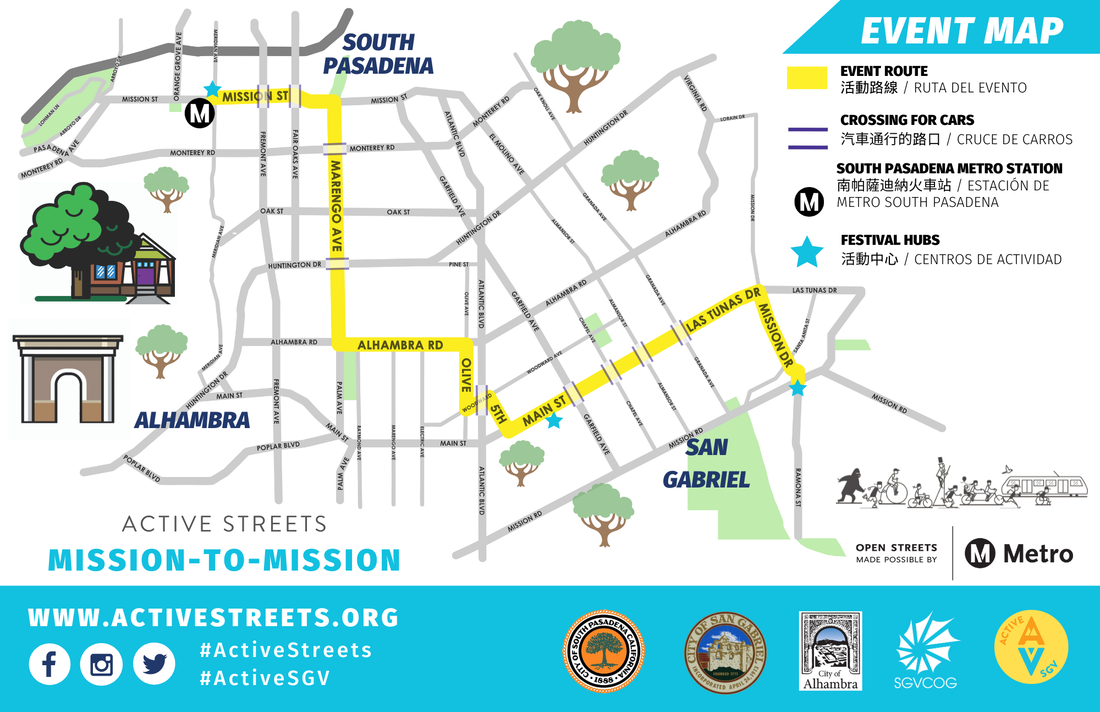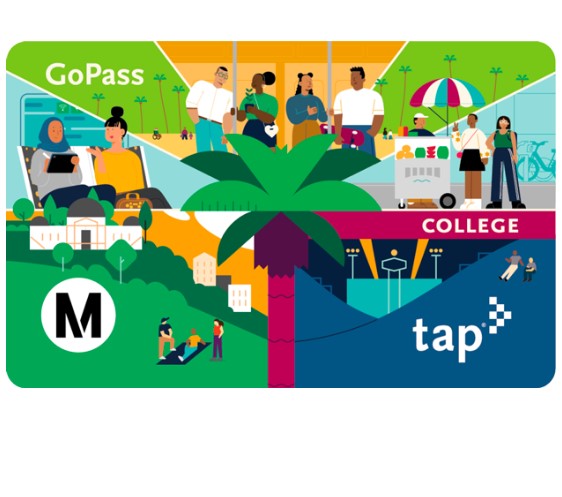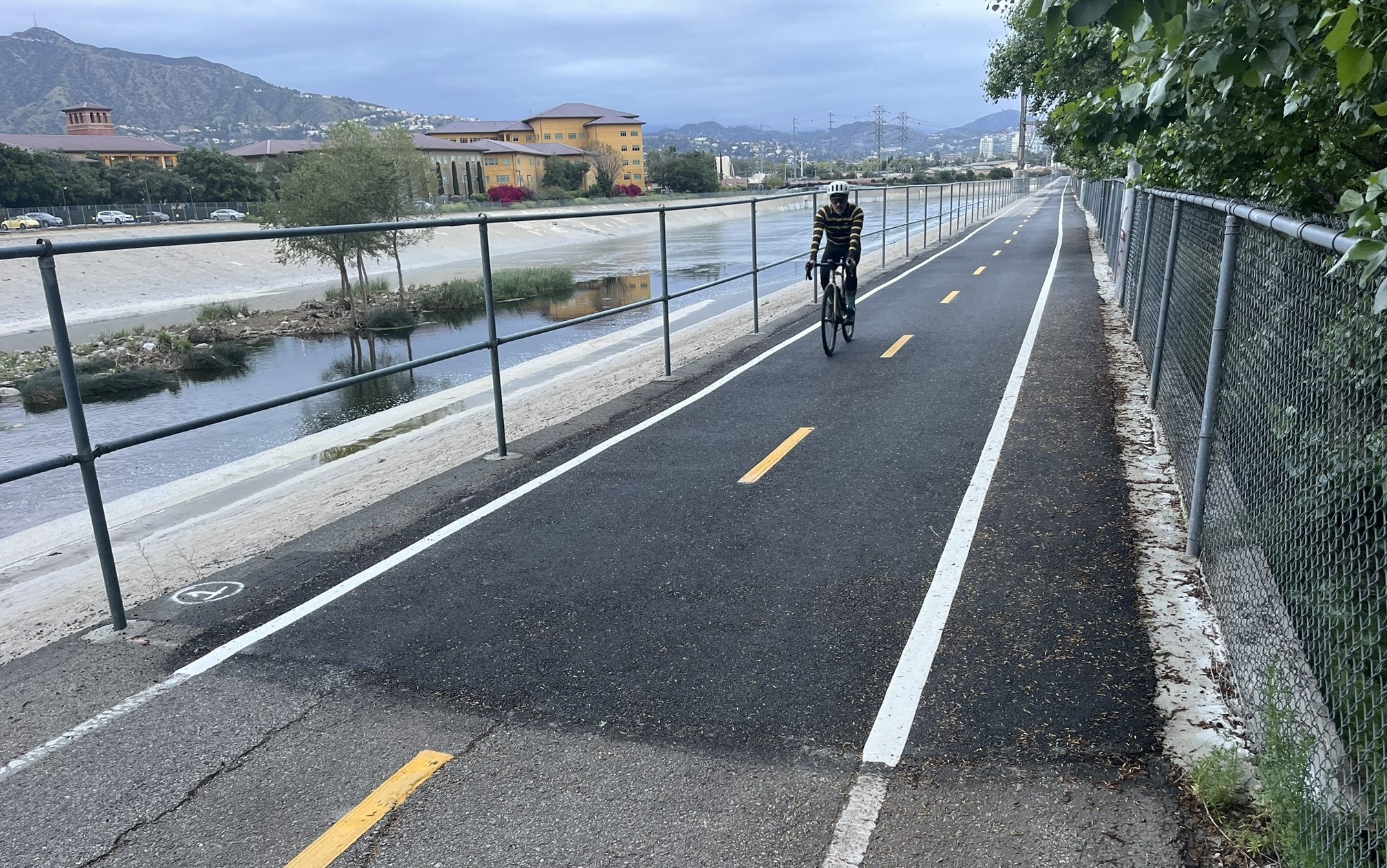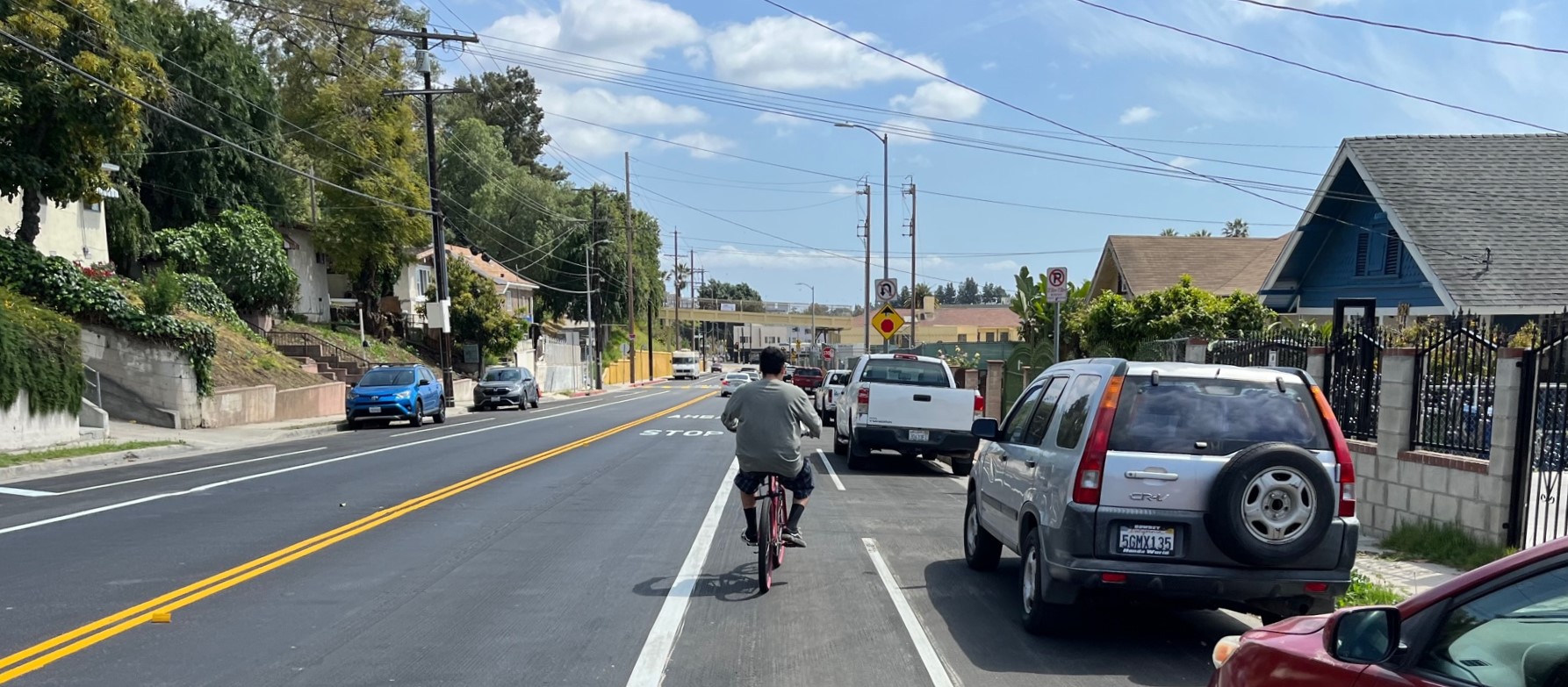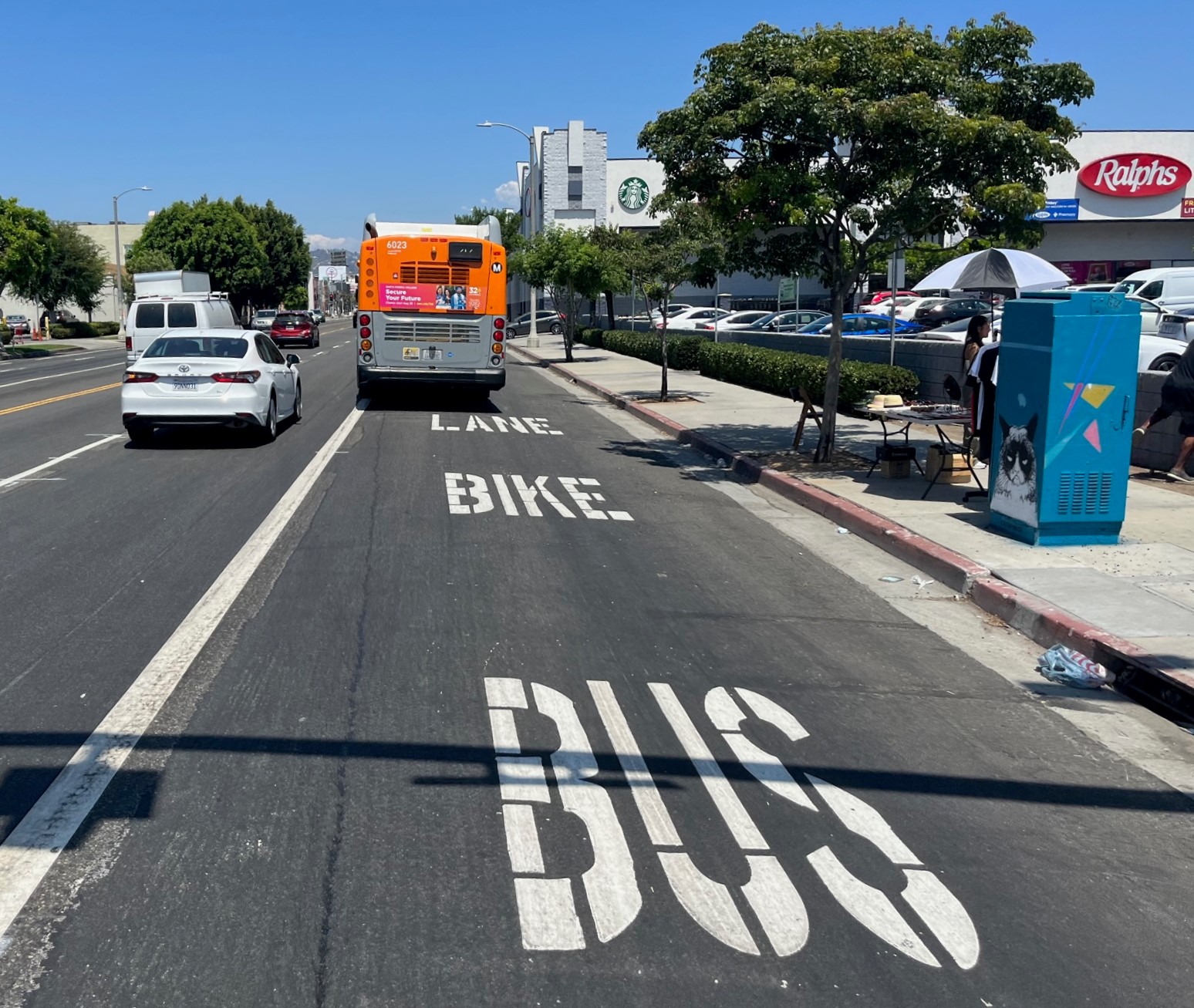In Kafka’s Castle: TDM in Action
9:58 AM PDT on October 14, 2009
 Photo: Duncan Rawlinson via The Last Minute Blog
Photo: Duncan Rawlinson via The Last Minute Blog(editor's note: Dr. Michael Cahn is a lecturer in book history at UCLA. There is also someone with the same
name affiliated with some bike group in town, but that is another
chapter. This story has received very light editing on my part and is re-printed with no change in content to give you an honest feel for the author's view. Streetsblog remains excited about the changes occurring in Long Beach and cautiously optimistic about the value of bike-sharing programs in L.A.'s future.)
In 2001, the Los Angeles County Bicycle Coalition released A Blueprint for a Bike-Friendly Los Angeles County. One specific demand outlined in this document was for Metro (MTA) to fund Bike Education and Promotion projects at five million dollars per Call For Projects (CFP) cycle. CFP is a competitive process through which METRO awards money for Transport Demand Management projects to cities and other agencies in the county.
The bicycle coalition realized ten years ago that the bicycle needs a firm place in the Transportation Demand Management (TDM) process which aims at reducing the number of Single Occupancy Vehicles on the road. Metro apparently saw this differently, and in the last few years, the Call for Projects process, despite some inspiring presentations by Todd Litman and Michael Woo, remains an arcane and bureaucratic process, from which the bicycle programs has been effectively excluded. The money is awarded only to a cities, and other agencies or non-profits are not admitted to the process. As it happens, this process puts bicycle work at a most serious disadvantage.
With the new SB 375 (editor's note: for more Streetsblog's coverage of SB 375 click here, here or here.) regulations around the corner, new expectations are being created that the elite of TDM experts can somehow reduce Greenhouse Gas Emissions by a mighty 40% per a presentation by Metro's Michael Turner. But as long as the CFP process remains the same, the results are likely to remain the same, - small, little steps that actually get more people into one car; while Metro's Robin Blair sitting at the helm and encouraging us to be innovative, and start something new. I have seen him in this mode for two years now, and I am not happy with it. If you do not change the process, you will not change the results.
Which brings us to this year's Multi-Mobility Forum, a Metro-sponsored, invitation-only, event billed as a chance to work together in an effort to
develop and implement effective multi-mobility strategies in Los
Angeles County. Calstart's Fred Silver delivered a compendium of Sustainable Community Transportation Strategies, in which the plain vanilla encouragement of cycling is suspiciously absent. We read about Ciclovia as a TDM strategy, and the old red herring called bike sharing. Yeah, people don't bike because someone has forgotten to put in a bike sharing program? Exactly!
His list of 10 options flexible and easily inflateable and on one of his slides he brags about "20 to 30" options available. I don't care how the numbers go up, but if you don't fund simple bicycle encouragement programs, driven by cyclists, using cyclists, rewarding cyclists, then you are swimming with one arm only. Feels like drowning in cars?
William McCarthy from the School of Public Health has his affiliation misspelled on the program, but delivers a powerful reminder of the limited agenda of those TDM experts who work the transformation of Single Occupancy Vehicles to High Occupancy Vehicles and forget the body. He reminds us of the solid health benefits of the non-car friendly city. This public health expert is still stunned by the success of the anti-smoking movement, which became unstoppable when it focused on passive smoking. He exhorts the audience to lead the TDM work into a similar area: Stop focusing on the "sacrifice" of the driver, and start talking about damage created by car, and how to protect the whole community from it.
Then follow a few presentations by recipients of last years program. Jane Choi speaks for City of LA and Jay Kim for LADOT, both offering a compelling proof of how broken the Call For Projects process is. Both projects pretend to be studies of some kind, but not exactly by academic standards. Some strange and costly exercises which raise many questions and pretend to be useful for someone. Oh dear. Oh dear. I probably failed to get the point, but to me these "studies" seemed a sheer and utter waste of money. Painful, very painful, if you ever wondered how much it would cost you to get one friendly cyclist to convince and assist his colleague to try the bike on the way to work. Sterling work, just get it done, and don't waste my time with more studies which wait in vain in some drawers. Sitting in the 15th floor, looking down on the broken landscape of what could be Los Angeles, tears come to my eyes as I see Jay Kim burning precious MTA dollars, compiling a list of difficult questions, instead of engaging cycling commuters, rewarding them for the encouragement work they all would love to do.
Then comes the City of Long Beach, dancing around some assumed and probably fraudulent attributes involving words like "most" and "bikefriendly". No doubt good things are happening there. But is this TDM money that is spent on encouraging cyclists? I am not sure. This matters, because we are here not to hear about sustainable transportation successes in Santa Monica (LUCE) or Santa Clarita, we are here to learn how Metro CFP will deal with the bicycle in the future. Or will they continue the habitual and all-Californian injustice of discounting the bicycle option right from the start. Injustice it is, and sheer stupidity, or something else I do not understand. Perhaps it is politics.
A strange and pathetic spectacle: Metro seems to encourage the multi-mobility audience to offer new programs, raise new options, but always knowing in advance what to do with the bicycle: Nothing. 30% of all trips are less than 5 miles, but METRO CFP somehow cannot support bicycle encouragement programs. A scandal for which I have not words. The drama is all in the person of Robin Blair, who presides over these proceedings as clown, sage and questioner, with a small band of ill trained soldiers. Has he invited us to teach us, to get our input, to feel the pulse of the time, to have a dialog with his own preconceptions? Has he invited us to remind us of the challenges of SB 375, so that we remind him of the exclusion of the unjust bicycle? Questions, questions.
How to improve the process? I'd say start with formalities and procedure. Make the invitation process public and put aside the old boys network of "you have been selected to participate." Inviting a distinguished speaker (McCarthy) two days before the event is striking proof how little importance Metro invests in serious TDM work. Circulate the program in advance of the event. Put it on the internet. Answer emails. This is good practice, but apparently very difficult at Transit Plaza. Even the speakers were left in the dark about the program and their time slot. This lacks respect and betrays the fatal arrogance of an institution which has grown too powerful. Be clear about what Calstart is doing in this process, and what their role is. Why is their logo on the program? Be clear about the nature of the event: Was that the "task force committee to develop the structure and objectives" for which an invitation was sent out in May 2009, and for which a meeting date was never divulged to the bicycle advocate who expressed an interest. Have we missed something?
And something else before I go: Putting custom labels on plastic water bottles is really uncool
Stay in touch
Sign up for our free newsletter
More from Streetsblog Los Angeles
Metro Board Funds Free Student Transit Pass Program through July 2025
Metro student free passes funded another year - plus other updates from today's Metro board meeting
Eyes on the Street: New Lincoln Park Avenue Bike Lanes
The recently installed 1.25-mile long bikeway spans Lincoln Park Avenue, Flora Avenue, and Sierra Street - it's arguably the first new bike facility of the Measure HLA era
